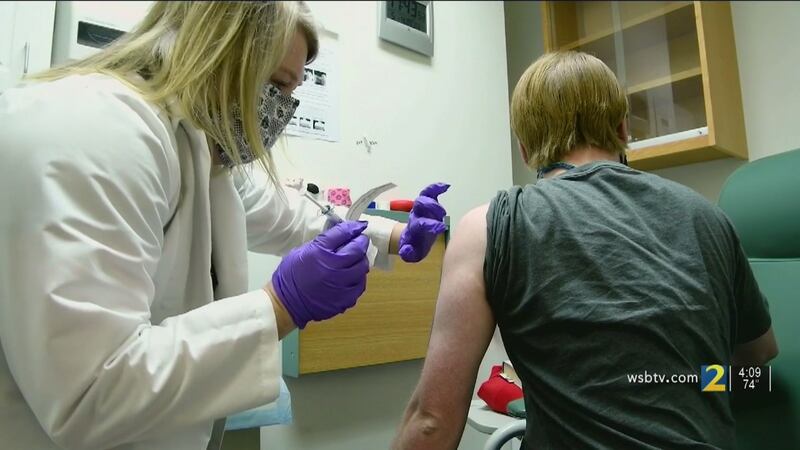ATLANTA — Georgia doctors are once again able to perform routine procedures and surgeries. But what if something goes wrong?
Channel 2 Action News has learned that an executive order put in place to help medical professionals through the COVID-19 emergency could prevent you from taking legal action if they make a medical mistake.
Channel 2 investigative reporter Justin Gray has been digging into the issue for the past couple of weeks and has learned the biggest concern could be at nursing homes.
Some of the problems at nursing homes, like understaffing, predate COVID-19, but the ongoing pandemic may have worsened the situation.
Attorneys now say an executive order that was intended to help protect healthcare workers on the front lines could end up giving cover to some bad nursing homes.
“When I uncovered her leg, it was black, purple, yellow, green -- every color under the rainbow,” said Stephanie Baghcum about her mother’s leg.
RELATED STORIES:
- As businesses reopen across Georgia, questions remain about safety of public restrooms
- Funeral workers say they should be considered essential workers, don’t have PPE to keep them safe
- Going to see your favorite band in concert is going to look very different once venues reopen
She said the nursing home had called her about a small bruise, possibly a hairline fracture, following the injury.
“I almost passed out because it was not a small fracture. It was broken in half,” Baghcum said.
Her mother is a dementia patient who can’t speak and can't walk.
“She is non-mobile. She doesn’t move,” Baghcum said.
When she called a lawyer looking for help, she got a surprising answer.
“What have you had to tell Stephanie about this?” Gray asked attorney Jon Marigliano.
“Essentially, we are kind of in a holding pattern,” Marigliano said.
The reason is an executive order from Gov. Brian Kemp.
The order was designed to protect hospitals, doctors, nurses and nursing homes from liability for their emergency work responding to COVID-19.
But lawyers like Marigliano say it also prevents lawsuits, in cases like Baghcum's mother, for injuries that have nothing to do with the pandemic.
“Right now, with this executive order, this nursing home has added protection,” Marigliano said.
Channel 2 Action News took this problem to three different medical malpractice attorneys who all told us the same thing.
They won't take cases for medical wrongdoing of any kind if it happened since the executive order was issued.
“Is there a concern here that this executive order gives them a 'get out of jail free' card?” Gray asked attorney Susan Witt.
“It absolutely does. It gives them a pass,” Witt said.
“It has the absolute protection right now. It essentially has blanket immunity,” Marigliano said.
“We’re very concerned that the order as written is going to take away the rights of Georgians to have a fair jury trial and to hold others accountable for negligence,” attorney Lance Lourie said.
Georgia is now once again allowing elective procedures in Phase One of reopening.
Kristine Dolly said she was injured during liposuction long before the pandemic.
“I looked like I was about nine months pregnant it was so swollen,” Dolly said. “I got botched, I got injured really bad. It was very traumatizing.”
She sued and won a judgment against the doctor. But her attorney, Witt, told Gray if the surgery happened right now, the emergency order could block the case from going forward.
“In my opinion, it is extremely broad. Every patient consumer in Georgia should be extremely concerned about that,” Witt said.
But not everyone reads the executive order the same way.
Georgia State University law professor Timothy Lytton said he believes the plaintiff’s attorneys are wrong.
“I don’t think it’s a blanket immunity for all sorts of misconduct that might occur,” Lytton said.
He says the governor’s order only applies to work directly related to the COVID-19 emergency.
“It wouldn’t cover anything that is not related to emergency management activities,” Lytton said.
But he warns that nursing homes could be the exception.
We've reported throughout the crisis on the tragedies taking place in some facilities struck by COVID-19.
The concern is that nursing homes could use the executive order as a cover for problems that have nothing to do with COVID-19.
“Those problems that predated the COVID-19 crisis are going to become worse with COVID-19,” Lourie said.
“They may be able to escape liability because their negligence is sort of under the umbrella of the general operations that are trying to adjust to the COVID-19 environment,” Lytton said.
Channel 2 Action News asked the governor’s office about the confusion with the executive order. In a statement, the governor’s office said:
“Healthcare workers are making personal sacrifices to provide critical care to patients in need and save lives. These Georgians – some coming out of retirement or reentering the workforce just to lend a helping hand – are true heroes among us. I’m proud to support them.”
Baghcum's mother was diagnosed with COVID-19 while hospitalized for the injuries she received at her nursing home. She's back in that facility now.
Her attorney said they won't file a lawsuit because of the uncertainty of the executive order.
“It tears me up. I have to continue to pray that she’s OK and put it in God’s hands because that’s the only one I can trust right now,” Baghcum said.
© 2020 Cox Media Group








